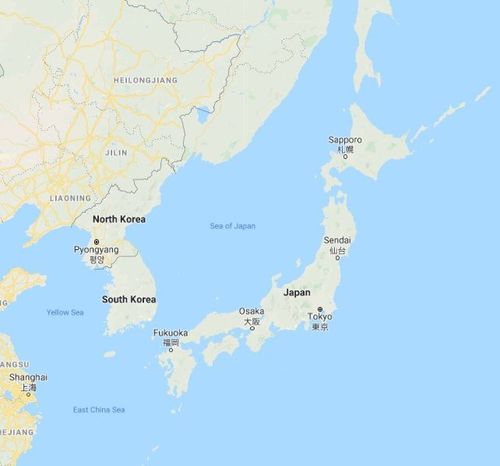Report: Japan works to develop SAF standards

SOURCE: Google Maps
July 9, 2024
BY Erin Voegele
Japan is working to develop standards for sustainable aviation fuel (SAF) according to a report filed with the USDA Foreign Agricultural Service's Global Agricultural Information Network on July 5. The government is expecting to begin drafting SAF legislation later this year.
To support the introduction of SAF, Japan’s Ministry of Economy, Trade and Industry (METI) and the Ministry of Land, Infrastructure, Transport and Tourism (MLIT) have jointly hosted meetings of the Public-Private Council to promote the introduction of SAF. The first of these meetings was held in April 2022.
Advertisement
Advertisement
The fifth and most recent meeting was held on June 27, 2024. During that meeting, METI’s Agency for Natural Resources and Energy (ANRE) announced plans to establish a new technical expert committee aimed at introducing next generation fuel in July. That committee is expected to meet several times to discuss key aspects of the development of new SAF standards. The meetings will support ANRE’s efforts to draft legislation related to SAF implementation. According to the report, SAF regulations are expected to rely on ASTM D7566 as a SAF definition. Work to draft the legislation could begin as soon as this fall.
The new expert committee will consider a variety of elements during its upcoming meetings, including the supply target volume for SAF; the formal definition of SAF; and greenhouse gas (GHG) reduction goals. The committee will also discuss the duration of the initial SAF regulations, target operators, and issues related to program flexibility.
Advertisement
Advertisement
Japan aims to reduce aviation GHG emission by at least 5% by 2030 when compared to a 2019 baseline. The upcoming SAF regulations are expected to be in place from 2030 to 2034 and apply to jet fuel producers that supply more than 100 million liters annually. According to the report, Japan aims for SAF used to meet these goals to achieve a 50% GHG reduction when compared to fossil-based aviation fuels.
The current work to develop SAF legislation is related to the Japan’s plans to develop volume target for SAF, as announced in mid-2023.
A full copy of the GAIN report can be downloaded from the USDA website.
Related Stories
CoBank’s latest quarterly research report, released July 10, highlights current uncertainty around the implementation of three biofuel policies, RFS RVOs, small refinery exemptions (SREs) and the 45Z clean fuels production tax credit.
The U.S. Energy Information Administration maintained its forecast for 2025 and 2026 biodiesel, renewable diesel and sustainable aviation fuel (SAF) production in its latest Short-Term Energy Outlook, released July 8.
XCF Global Inc. on July 10 shared its strategic plan to invest close to $1 billion in developing a network of SAF production facilities, expanding its U.S. footprint, and advancing its international growth strategy.
U.S. fuel ethanol capacity fell slightly in April, while biodiesel and renewable diesel capacity held steady, according to data released by the U.S. EIA on June 30. Feedstock consumption was down when compared to the previous month.
XCF Global Inc. on July 8 provided a production update on its flagship New Rise Reno facility, underscoring that the plant has successfully produced SAF, renewable diesel, and renewable naphtha during its initial ramp-up.
Upcoming Events










